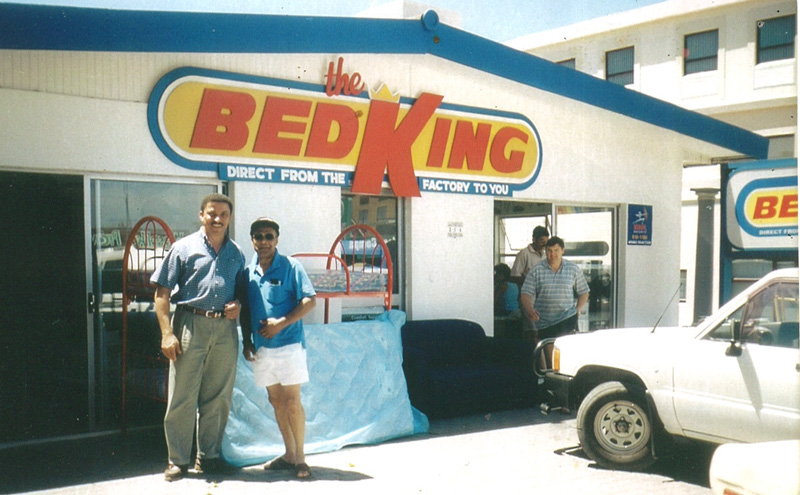Family-owned businesses play a crucial role in the economy. It’s estimated that 80% of South African companies are family-owned and provide jobs for 90% of the workforce, making their success and endurance vital.
However, as these businesses mature, so do the founders. Whether it’s a family member or non-family member poised to take over the reins — having the right structures, a strong culture, vision and purpose in place are key.
McKinsey identifies four mindsets common to all family-owned businesses that give them a competitive advantage and are crucial to their success.
These include:
- a focus on purpose beyond profits;
- a long-term view with an emphasis on reinvesting in the business;
- a conservative and cautious stance on finances,
- and processes that enable efficient decision-making.
Coincidentally, millennials share similar mindsets when considering their career choices. Their focus on outcomes, purpose and goals, valuing both the customer and employee, being risk-averse, disliking bureaucracy, and preferring a less rigid corporate structure make them well-suited to working in family-owned businesses.
The Bed King Story
One family-owned business that embodies these four mindsets and has millennial leadership in place is Bed King. Founded 25 years ago by owner and MD Mervyn Ewertse on a shoestring budget, Bed King now boasts 16 outlets nationwide, with its 17th store opening in Johannesburg this April. Thanks to Mervyn’s enterprising spirit, ability to identify opportunities and embrace innovation such as their Comfort Solutions Lab, he has positioned Bed King as the leader in sleep innovation in South Africa. Building his reputation on integrity, values and compassion, Mervyn made his mark on the bed industry early on.
But as with any other family business, including and mentoring the next generation is vital for succession and the continued sustainability of the business.
Hence, Carla Myburgh-Ewertse, Mervin’s daughter, joined the family business in 2017 and is now the operations director at Bed King.
Carla cites her father’s entrepreneurial mindset, purpose-driven leadership, genuine concern for his clients’ comfort, his dedication to building a collaborative company culture and upholding his vision and brand purpose as key to the success of Bed King.
But, how do you ensure that those company values, culture and purpose are transferred to the next generation, whilst balancing different perspectives and also allowing tech-savvy millennials to make their mark?
Bizmag chats to Carla, who shares her journey growing into a leadership role in the family business, and key learnings and insights into successful multi-generational collaboration.
Q. When did you decide that you want to be part of the family business, or did it seem like a natural step?
A: I was only six years old when my father started Bed King. But growing up, I was often included in business discussions that my parents would have around the supper table. My dad would ask for my opinion on matters and give me insight into business developments, especially with marketing, product and store development. I would travel with him to meet new suppliers and work at trade shows. So even in the years before officially joining, I considered myself to be a part of the Bed King family. I was always thinking through the Bed King lens, and when walking through other retail stores would often look for inspiration and ideas that we could implement. I even did my final year varsity research project on Bed King.
Q. In what capacity did you officially start working in the business, and how were you prepared for a future leadership role?
Initially I was my dad’s personal assistant. I had a desk in his office, was part of every meeting taking notes, would type his emails for him, etc. This allowed me to spend the first two or so years absorbing as much as possible.
In learning from him and executing small tasks, my confidence grew. Only in the last two years or so have I grown into a leadership role. It’s been a trial by fire in many aspects. There’s only so much you can learn in varsity and through observing others. I’ve learned much more through the experiences I’ve had and the mistakes I’ve made. I always aim to improve as I go along.
We are currently working on a formal succession plan for the Bed King leadership as a whole. This does not necessarily mean that I am next in line to take over from my dad in terms of the CEO role. That role needs to be occupied by the best possible person — even if it must be external. However, I would always want to have an impact on Bed King’s overall direction and to build on the foundation my parents have set.
Q. You obviously admire your father’s values, integrity and his purpose for Bed King. How can family businesses ensure a continuation of those values, whilst allowing space for the next generation’s own vision and aspirations?
A: Firstly, it’s vital as a family owned business to set a culture and value system that is based on accountability and professionalism. Oftentimes family owned businesses breed a culture of unaccountability where, because its ‘family owned’, everyone is treated like ‘family’. But accountability ensures the business’ success and that future generations have an opportunity to join it.
Secondly, when the next generation joins the family business, it’s important that they first work within the business to get experience before implementing their own vision and aspirations. This will help them to understand, live and breathe the existing culture, core values, vision and purpose, and will give them better insights that could guide their visions and aspirations for the business. Don’t come in guns blazing and try to implement change before fully understanding the existing business.
Q. How can family businesses foster constructive and productive cross-generational communication?
A: My dad often highlights Steven Covey book “The 7 habits of highly effective people”. One of the habits is to ‘Seek first to understand, then to be understood’. This has always stayed with me and I believe it is the key to having open, constructive and productive communication across generations and within our company operations. It’s a lesson I’m learning to put into practice every day.
My father also always listened to his staff intently, and I believe this is part of our success. It has resulted in the collaborative company culture we have today.
Q. Based on your experience, what are strengths of having multiple generations working in a family business? And how can you foster a positive environment of knowledge transfer?
A: Older generations have a wealth of knowledge and experience from all the years working in the family business that the younger generation doesn’t have. Their experience and insights can bring a sense of calm and stabilising factor to the business, especially when business is tough. They’ve been through just about every single business challenge possible and they have experience navigating it and coming through it. That’s the invaluable experience that they can share with the younger generations.
Younger generations bring new ideas, new insights, and new ways of working to a family business, as they’ve grown up with the fast pace of technology and social media. We can see how certain processes can be improved upon and even automated that the older generation may not be aware of. Younger generations are also more open to and aware of mental health, work-life balance, and boundaries. This can shape and improve the family business culture which traditionally lacks boundaries and work-life balance.
The benefit of having multiple generations working together is that it’s an opportunity to leverage the older generations’ experience, whilst benefitting from the new ideas, tech-savviness and energy injected by the younger generation.
To encourage knowledge transfer, you need to practice an open style of communication and thinking. The younger generation needs to be open to listening to the older generations and learning from them, and not just discount their ideas because you think they’re outdated. And the older generation needs to be open to listening to the younger generation, and not just discount their ideas because they are inexperienced.
Q. Millennials will inevitably come with new ideas and technologies to take the company forward, and may encounter pushback and resistance to the ‘way things have always been done’. What would be your advice to manage tensions this may create?
A: Innovation is key to growth. It is no longer a luxury, but a necessity for businesses to succeed in the modern era. We’re undergoing digital transformation, just like other businesses that began at the turn of the century.
But my advice would be to first understand how things have always been done, why it’s been done a certain way, and what the benefits and disadvantages of the current process are. Thereafter you can better implement technology to improve the process.
I’ve learned from my own experience that it doesn’t help to quickly introduce technology for technology’s sake if you don’t fully scope the existing processes. You can easily hit a wall.
Secondly, by scoping existing processes fully, you can be better armed with knowledge and data to support your decision to introduce new technology when discussing it with an older generation. Without data, it will always be a debate.
Lastly, as a younger generation, we want all processes to be frictionless and automated which can be expensive to implement in an existing business. Be open to less technologically invasive ways to improve process flows.
The Natural Evolution of Leadership in Family-Owned Businesses
The story of Bed King serves as an example of how the combination and alignment of traditional family business values, and the purpose-driven and technologically adept mindset of millennials can create a powerful synergy that drives growth, innovation and sustainability in the modern business landscape.
By focusing on cultivating a company culture that values mentorship, continuous learning, and respect for different perspectives across generations with a clear sense of purpose, leadership changes in family-owned businesses can simply become a natural evolution of the business.
“As a family business we have to balance the needs of the business with family objectives and expectations. I feel incredibly lucky to have had a mentor like my father. His attitude and demeanour have stayed with me forever . I’ve always known our purpose at Bed King, and as a close family, trust and mutual respect are at its core. My father showed me that while entrepreneurship may not be glamorous, it can be gratifying, and perseverance goes a long way,” Carla concludes.





